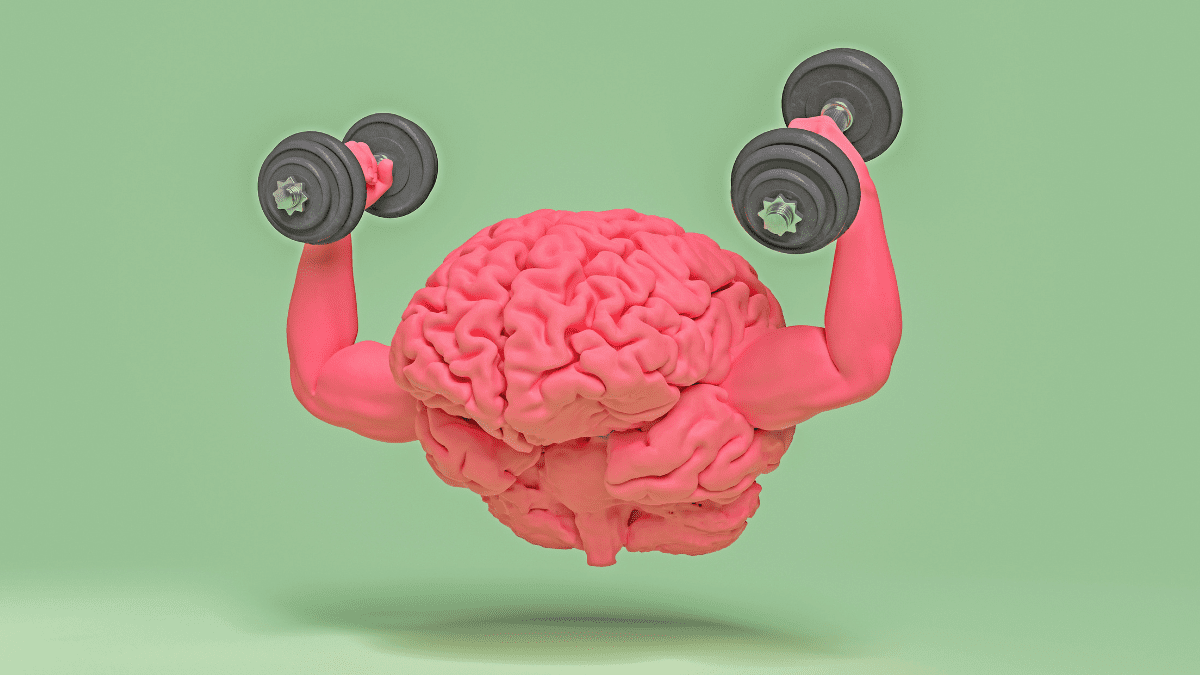Insomnia Nutrition Breakthrough: Foods That Knock You Out
Insomnia nutrition isn’t a myth—it’s your secret weapon. Discover the foods that knock you out, silence your mind, and finally deliver the deep rest you’ve craved.

In This Article
- Insomnia Nutrition: Could Food Be the Missing Sleep Cure?
- What Is Insomnia Nutrition and Why Does It Work?
- Which Nutrients Are Essential for Deep Sleep?
- What to Eat When You Can’t Sleep at Night
- What Foods Worsen Insomnia Without You Realizing?
- How to Build a Personalized Insomnia Nutrition Plan
- Sleep Starts with What You Eat
- Insomnia Nutrition — FAQ
Insomnia Nutrition: Could Food Be the Missing Sleep Cure?
You’re tired, but your mind won’t slow down. You lie awake, night after night, hoping something will finally help. But what if the answer isn’t in another supplement—or a screen break—but in what’s already on your plate? Insomnia nutrition isn’t a trend. It’s a proven, natural approach that’s helping thousands transform their nights through food. What you eat—when and how—directly impacts your ability to fall asleep, stay asleep, and wake up refreshed.
Even more, the right foods can calm your nervous system, balance your hormones, and restore your inner rhythm—without side effects. While sleep pills sedate the brain, nutrition works with it. That’s what makes this approach so powerful.
In this article, you’ll discover which foods help your body produce melatonin naturally, what nutrients silence a racing mind, and which ingredients quietly sabotage your sleep without you realizing it. You’ll also learn how to build your own personalized sleep nutrition plan that’s simple, sustainable, and grounded in science.
If you’re also struggling with the deeper effects of sleepless nights, don’t miss our guide on sleep deprivation and nausea—and how to finally feel better.
Let’s dive into the healing potential of food—and finally reclaim your nights.
What Is Insomnia Nutrition and Why Does It Work?
How Can the Right Foods Trigger Sleep Naturally?
Sleep isn’t just a nighttime process—it starts in your gut and brain long before you close your eyes. The right foods send calming signals to your nervous system. They help regulate sleep hormones like melatonin and serotonin. As a result, your body begins to wind down—naturally.
By choosing nutrient-rich foods, you teach your brain when it’s time to rest. Over time, this creates a consistent internal rhythm that supports deep sleep.
Even small changes in your daily meals can create noticeable shifts by bedtime.
What Is the Gut-Sleep Connection All About?
You might be surprised to know that your gut produces nearly all your serotonin. And serotonin is a key player in melatonin production, which regulates your sleep-wake cycle.
When your gut is inflamed or imbalanced, sleep suffers. But when you nourish it with fiber-rich, calming foods, the opposite happens. Your digestion improves. Your mind quiets. And your sleep deepens.
That’s why insomnia nutrition doesn’t just focus on the brain—it starts in the belly.
Can Insomnia Nutrition Fix Chronic Sleeplessness Over Time?
Yes, especially when paired with consistency. While pills may offer temporary relief, food works differently. It builds balance from the inside out.
By restoring nutrients your body is missing, insomnia nutrition creates lasting change. It doesn’t knock you out—it invites rest.
It may take time. But with each meal, your system begins to stabilize. And that’s where true healing starts.

Which Nutrients Are Essential for Deep Sleep?
Does Magnesium Really Help You Fall Asleep Faster?
Yes—and it does so gently. Magnesium helps relax your muscles, soothe your nervous system, and lower cortisol levels. As tension fades, sleep becomes easier to reach.
You might feel calmer within an hour of consuming magnesium-rich foods. Even better, the effects build with time. As you stay consistent, your body begins to rest more deeply on its own.
This is why magnesium plays a central role in insomnia nutrition. It prepares both your body and your brain for rest.
How Do Tryptophan and Vitamin B6 Work Together?
On their own, they’re powerful. But together, they help your brain make serotonin—a key ingredient in melatonin production. Without enough of them, your sleep-wake cycle can get thrown off.
Foods high in tryptophan, like turkey, pumpkin seeds, and oats, become even more effective when paired with B6-rich options like bananas and spinach. This pairing creates the perfect environment for natural sleep chemistry.
With the right combination, your body knows what to do. It relaxes. Then it resets.
Why Is Melatonin from Food Better Than a Pill?
Supplements can help in the short term. However, they often create spikes your body can’t sustain. Food-based melatonin, on the other hand, releases gradually. It mimics your body’s natural rhythm.
Cherries, walnuts, and goji berries are all excellent sources. These don’t just supply melatonin—they support the full chain of sleep-promoting processes.
Through insomnia nutrition, your system learns to make what it needs—without artificial disruption.
Can a Nutrient Deficiency Keep You Awake?
Absolutely. Even mild deficiencies can interrupt sleep. Low levels of iron, magnesium, or certain B vitamins may cause restlessness or even nighttime anxiety.
By correcting these imbalances with food, you create a foundation for lasting sleep. It’s not just about what you add—but what your body may have been missing all along.
What to Eat When You Can’t Sleep at Night
Are There Specific Foods That Promote Better Sleep?
Yes, and many are surprisingly simple. Some foods naturally support melatonin production or soothe your nervous system. These include almonds, tart cherries, bananas, and oats.
They contain sleep-supporting nutrients like magnesium, tryptophan, and complex carbs. These calm your body and prepare your brain for rest.
By including these foods regularly, you train your body to recognize when it’s time to wind down.
Should You Eat Before Bed or Not at All?
This depends on how your body responds. For some, eating late disrupts sleep. For others, a light snack can prevent blood sugar dips that cause early wake-ups.
Instead of heavy meals, choose small, balanced snacks. Something with healthy fats, complex carbs, and protein works best. These help maintain energy without overstimulating digestion.
The key is listening to your body. Too full or too hungry—both can interfere with sleep.
What Bedtime Snacks Actually Help You Sleep?
When it comes to insomnia nutrition, the right snack can make all the difference. Try combinations like banana with almond butter, warm oat milk with cinnamon, or a slice of whole-grain toast with avocado.
These pairings offer the nutrients your body needs to settle. They also send comforting signals to your brain. Over time, your mind begins to associate them with rest.
Even better, these snacks are gentle, satisfying, and easy to prepare—even when you’re exhausted.
Can Insomnia Nutrition Help During a 3 A.M. Wake-Up?
It can. If you find yourself awake in the middle of the night, reach for something light but calming. A few walnuts or a spoonful of yogurt may be enough.
Avoid sugary or processed foods. They may feel comforting at first, but they often cause more disruption later.
Instead, give your body what it truly needs—support, not stimulation.

What Foods Worsen Insomnia Without You Realizing?
Is Sugar the Silent Sleep Killer?
It often is. While sugar can give a brief feeling of comfort, it quickly disrupts your blood sugar balance. This can lead to energy crashes—and nighttime wakeups.
Worse, sugary snacks may cause adrenaline spikes that keep your mind alert when it should be resting. Even a “healthy” granola bar before bed could be sabotaging your sleep.
Reducing added sugar throughout the day can help. Especially in the evening, choose foods that stabilize your energy instead of spiking it.
How Does Caffeine Hide in Unexpected Foods?
Caffeine isn’t just in coffee. It hides in chocolate, certain protein bars, sodas, and even teas labeled “herbal.” Consuming these too late in the day can delay melatonin release and make it harder to fall asleep.
Many people don’t realize that caffeine can stay in your system for 6–10 hours. So, even if you don’t feel wired, your body may still be too stimulated to rest deeply.
To support insomnia nutrition, aim to avoid all caffeine after midday.
Could Alcohol Be Disrupting Your Sleep Cycle?
While alcohol may make you feel drowsy at first, it interferes with the quality of your sleep. It reduces REM cycles and causes fragmented rest. You may fall asleep quickly, but you won’t stay asleep—or wake up feeling refreshed.
Even one or two drinks can shift your sleep pattern. If you’re struggling with insomnia, it’s worth experimenting with alcohol-free evenings to see how your body responds.
Why Does Insomnia Nutrition Warn Against Heavy Dinners?
Large, greasy, or spicy meals close to bedtime can keep your digestive system active when it should be slowing down. This creates discomfort, bloating, and sleep disturbances.
Instead, eat your heaviest meals earlier in the day. Choose lighter, nutrient-dense options in the evening. This simple shift can make a noticeable difference in how easily you fall—and stay—asleep.
How to Build a Personalized Insomnia Nutrition Plan
Where Should You Start When Changing Your Diet?
Start simple. Instead of overhauling everything, make one or two intentional shifts. That might mean swapping a sugary evening snack for almonds. Or replacing your late-night soda with chamomile tea.
When it comes to insomnia nutrition, even small changes can reset your rhythm. Begin with foods that support calm and reduce stimulation. Over time, your sleep will respond.
The goal isn’t perfection—it’s progress.
Can Meal Timing Help Reset Your Sleep Patterns?
Yes, timing matters as much as content. Eating too close to bedtime can trigger digestion when your body wants to slow down. Yet going to bed hungry may also disrupt sleep.
Try to finish larger meals at least 2–3 hours before sleep. If you need something later, stick to a light, sleep-supporting snack.
Creating consistent mealtimes throughout the day helps regulate your internal clock. Eventually, your body starts to anticipate rest.
Should You Track Food and Sleep Together?
Absolutely. Keeping a simple journal can reveal patterns you might miss. Track what you eat, when you eat it, and how you sleep that night.
Soon, you may notice certain foods or habits that interfere—or help. This allows you to adjust with intention rather than guesswork.
By aligning your diet with your body’s real needs, you empower deeper, more consistent rest.
How Can You Stay Consistent with Insomnia Nutrition?
Consistency doesn’t mean rigidity. Life happens. What matters most is showing up often enough to build rhythm.
Make it easy. Prep calming snacks in advance. Keep sleep-friendly foods visible. Build habits slowly, so they become second nature.
Eventually, the way you nourish yourself will support you around the clock—especially at night.
Sleep Starts with What You Eat
If you’ve been tossing and turning, you’re not alone. But now, you also know something powerful: food plays a much bigger role in your sleep than you thought.
From calming nutrients to blood sugar balance, your meals shape your rest. Not just at night—but all day long. With every bite, your body receives signals. Some promote peace. Others provoke chaos.
That’s why insomnia nutrition is more than a sleep hack—it’s a long-term solution. By choosing the right foods, you support your hormones, soothe your nervous system, and restore natural rhythm.
And no, it doesn’t take a complete lifestyle overhaul. It starts with awareness. Then one small change. A shift in timing. A smarter snack. A calmer evening ritual.
Even if results don’t show up overnight, stay consistent. Because each choice builds a stronger foundation. Your body will respond. Your energy will return. Most importantly, your nights will feel lighter.
You don’t need to rely on sleep aids forever. You can nourish yourself into rest. Naturally. Gently. Powerfully.
So if your sleep feels broken, remember this: it may not be your mind. It may be your menu.
Let your healing begin on your plate. And let your body lead you back to rest.
Insomnia Nutrition — FAQ
Can insomnia nutrition really replace sleep medication?
In many cases, yes. While it may not act as quickly, it works more deeply. Over time, the right foods can rebalance your system and improve sleep naturally.
How long does it take for insomnia nutrition to work?
Results vary. Some people feel better within days, while others may need weeks. However, with consistency and patience, your sleep patterns can improve noticeably.
Do I need to follow a strict diet for insomnia nutrition to help?
Not at all. Even small shifts make a big impact. Begin with sleep-friendly snacks, reduce stimulants, and eat more calming, nutrient-rich foods throughout the day.







